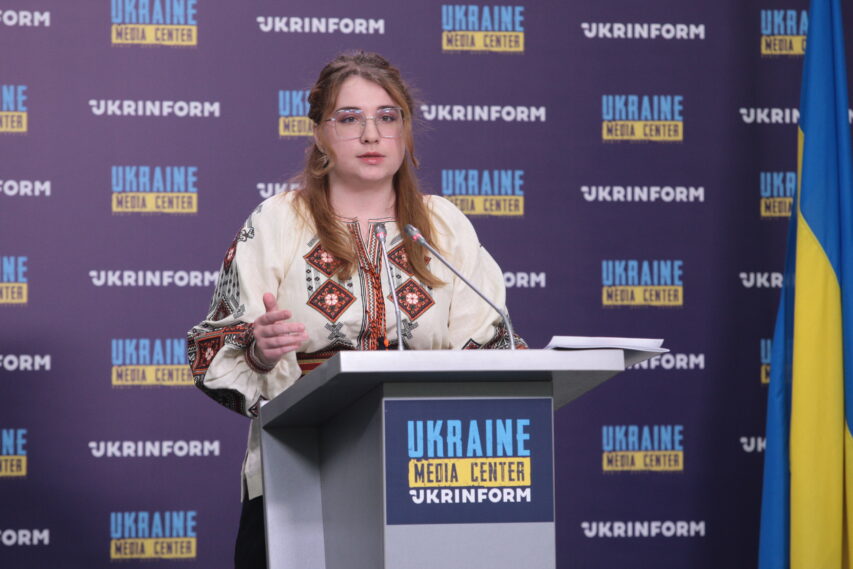
Human rights activist: russia plotted deportation of Ukrainians before the full-scale invasion outbreak
russia’s deportation of the Ukrainian population to the temporarily occupied territories cannot be called a relevant response to the people being exposed to a threat. Even before the full-scale invasion outbreak, the authorities of the Rostov region of russia announced the preparation of 188 temporary accommodation centers for Donbas residents on its territory. As of October 2022, 807 such centers had been deployed.
It was emphasized by Onysiia Syniuk, legal analyst at ZMINA Center for Human Rights, during a study presentation on the deportation of Ukrainians by russia held at the Media Center Ukraine – Ukrinform.
According to the human rights activist, the study managed to find out the circumstances of Ukraine citizens displaced from one occupied territory to another and also to russia. Considering the conditions these persons were transferred in, having no choice, and under what conditions their independent moving condemns as illegal deportations.
The study is based on both open sources and testimonies of Ukrainians directly affected by deportation.
“Despite the numerous statements made by the russian federation state apparatus representatives, russia’s actions do not fall under International Humanitarian Law evacuation requirements. Since the aforementioned evacuation measures are the only legal way to move the population, there must be one of two reasons for this. Firstly it must be done either to ensure the population’s safety or for particularly compelling military reasons. Only one of these reasons can be the basis for the displacement of the population. In the case of Ukraine to russia population displacement, no such grounds were found,” emphasized Onysiia Syniuk.
She noted that when it comes to evacuation, the initiating state is required to ensure the population returns to the former place of residence territory as soon as the danger passes. This, in particular, implies both are not preventing the population from reaching the destination of the initial place of evacuation on their own and actively facilitating and assisting the people in this return.
However, the human rights activist noted russia, for its part, is taking measures to prevent Ukrainian citizens from returning not only to their homes but also from leaving for the territory of other states.
“Civilian objects in the occupied territories are being destroyed, including the residential buildings, making it impossible to return to. There are also facts about the russian military occupying the homes of citizens, thus also depriving them of the opportunity to come back home. In addition, in communication with the victims, we have recorded cases of obstruction of their return to the territory of Ukraine. In particular, when Ukrainian citizens are brought to the territory of russia, they are immediately sent to remote regions of russia. People are oftentimes when they are put on transport, these are special trains and are not even informed where the train is going. They are being separated from fellow citizens they are constantly traveling with. And there have even been cases of interference with purchasing tickets to other countries,” emphasized Onysiia Syniuk.
According to the human rights activist, among other things, numerous violations of the evacuation measures procedure were reported, including those of proper accommodation, hygiene, and food in the places where they are staying.
“In one case, people were transported from a filtration point on the occupied territory to the border with russia for three days without being informed of their final destination, having no water or food given. Only elderly people were allowed to get off at the stops,” she added.
Onysiia Syniuk emphasized that a significant factor that shows that the evacuation was not aimed at protecting the population, but was the purpose of deporting people, is that these measures were planned in advance.
“These actions cannot be called a response to the population being exposed to a threat if, as of February 20, 2022, even before the full-scale invasion outbreak, the authorities of the Rostov region of russia announced the preparation of 188 temporary accommodation centers for Donbas residents on their territory. As of October 2022, 807 such centers had been deployed. Moreover, in March 2022, the russian government issued a decree on the Ukrainian population resettlement across the federal subjects. That is, the Ukrainian population was planned to be dispersed across the country in order to complicate their return.”
Read more: https://mediacenter.org.ua/news
 Back
Back 